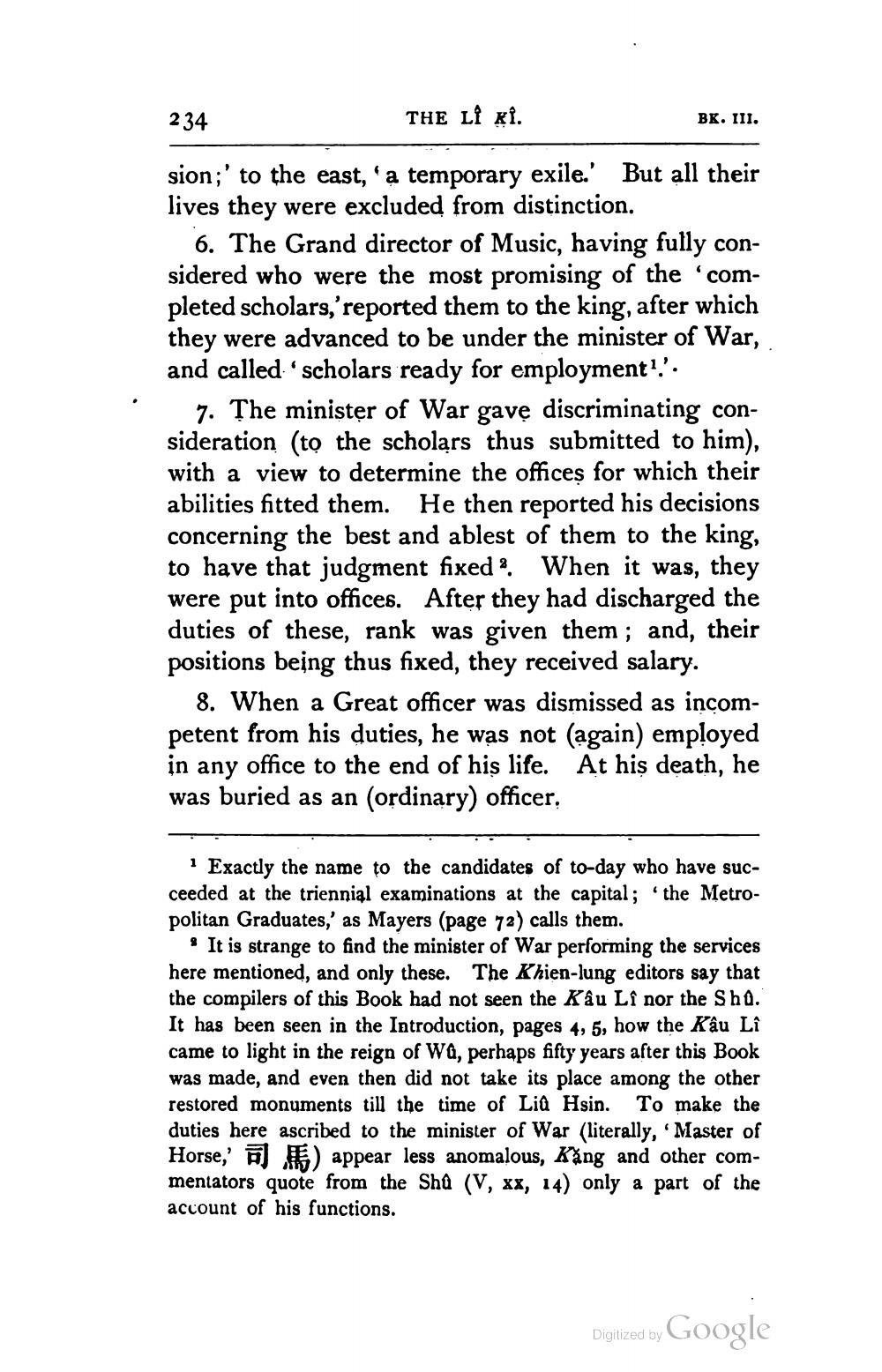________________
234
THE LÎ ki.
BK. III.
sion;' to the east, a temporary exile.' But all their lives they were excluded from distinction.
6. The Grand director of Music, having fully considered who were the most promising of the 'completed scholars,' reported them to the king, after which they were advanced to be under the minister of War, and called 'scholars ready for employment?:
7. The minister of War gavę discriminating consideration (to the scholars thus submitted to him), with a view to determine the offices for which their abilities fitted them. He then reported his decisions concerning the best and ablest of them to the king, to have that judgment fixed. When it was, they were put into offices. After they had discharged the duties of these, rank was given them; and, their positions being thus fixed, they received salary.
8. When a Great officer was dismissed as incompetent from his duties, he was not (again) employed in any office to the end of his life. At his death, he was buried as an (ordinary) officer,
1 Exactly the name to the candidates of to-day who have succeeded at the triennial examinations at the capital; the Metropolitan Graduates,' as Mayers (page 72) calls them.
It is strange to find the minister of War performing the services here mentioned, and only these. The Khien-lung editors say that the compilers of this Book had not seen the Kâu Lĩ nor the Sh. It has been seen in the Introduction, pages 4, 5, how the Kâu Li came to light in the reign of WQ, perhaps fifty years after this Book was made, and even then did not take its place among the other restored monuments till the time of Lill Hsin. To make the duties here ascribed to the minister of War (literally, Master of Horse,' a ) appear less anomalous, Kång and other commentators quote from the Shơ (V, xx, 14) only a part of the account of his functions.
Digitized by
Digitized by Google




